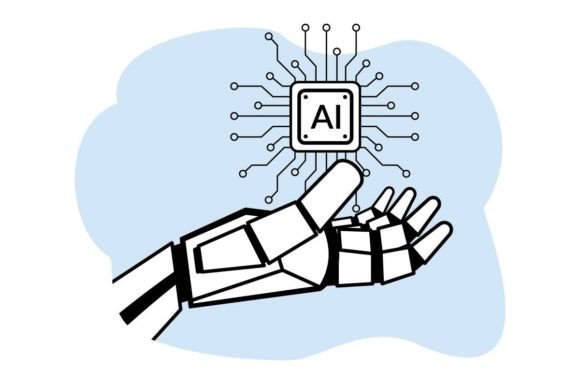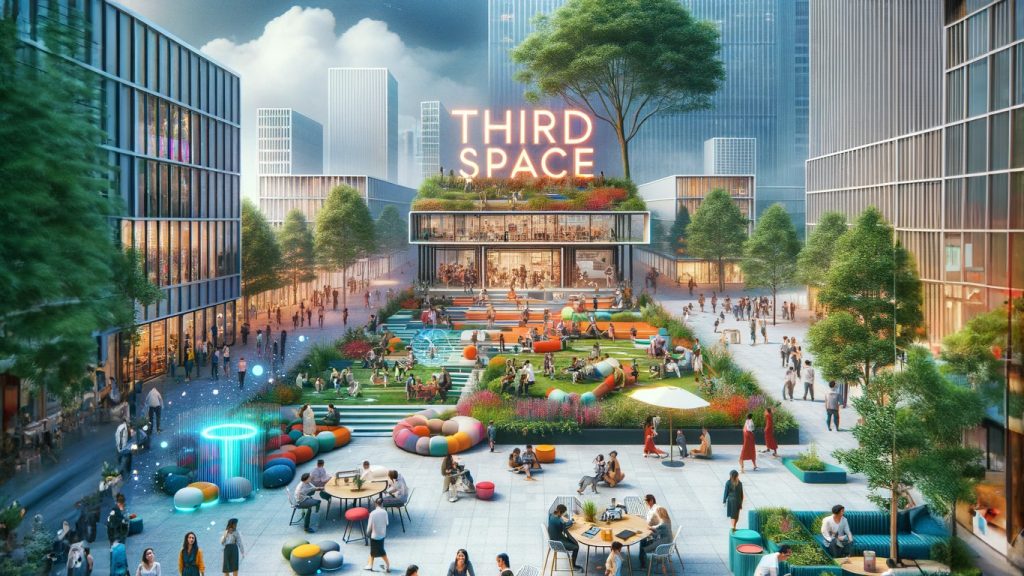These are my predictions for what real estate will face in 2024… We’ll check back in 2025 to see which of them were right and which ones were way off (since I don’t have a crystal ball, there’s bound to be a few).
As we move into 2024, the real estate landscape is experiencing transformative change, shaped by a blend of demographic shifts, technological advancements, and socioeconomic factors that are rewriting the rulebook of the industry. From the surge in remote work to the rapidly growing role of artificial intelligence, the only constant in real estate now is change itself.
The Great Migration: Urban to Suburban and Beyond
One of the most profound shifts in the real estate sector has been the demographic movement fueled by the acceptance and embracement of remote work. The once clear separation between urban efficiency and the quiet of suburban life is increasingly blurred. Employees are trading their city lives for suburban havens, not just for the affordable square footage, but for quality of life. I know for at least my family and friends this is true. This lifestyle shift is echoing across the market, showing in increased housing demands in the suburbs or smaller cities, like Charlotte, Raleigh, and Nashville, to name a few, while metropolitan areas evolve to meet the changing landscape.
For real estate professionals and investors, understanding these migration patterns will be pivotal. It’s not just about tracking where people move, but understanding why they move. The ‘why’ reveals opportunities for new developments, repurposing of old structures, and a horizon of emerging markets that balance living and remote working environments.
Rethinking Workspace: Flexibility as the New Standard
The flexible workplace revolution that accelerated due to the pandemic is now the industry’s ground zero. Workplaces are diversifying, focusing on flexibility and employee well-being. The ‘work from home’ model, formerly a perk, is now an expectation, leading to a decline in demand for traditional office spaces and a burgeoning interest in hybrid models that merge residential comfort with professional functionality.
For commercial real estate, this calls for a pivot from constructing corporate towers to creating work-friendly environments perhaps closer to residential zones, designed specifically for hybrid work models. We’re likely to see a rise in demand for office spaces with flexible layouts that can adapt to hot desking, hoteling, and collaborative spaces.
Downtown: The Challenge of Reimagining Our Cities
The decline in demand for office real estate has put downtown areas in a perilous position, as I’ve previously written. Once thriving business districts now face lower occupancy, and retail, which once relied on the foot traffic from those bustling office buildings, is struggling to survive. In response, I predict a renaissance that will transform downtown central business districts into mixed-use ecosystems. We may see even more incentives for the conversion of office buildings into residential spaces, vertical gardens, communal hubs, and other creative uses that redefine the entire concept of a city center.
Thus, creatives, urban planners, and developers should view downtowns not as sinking ships but as canvases ripe for a reimagining that fits the spirit of 2024 and beyond.
The Rise of AI: From Mundane to Market-Making
Artificial intelligence in real estate has been largely relegated to routine administrative tasks, but its potential is on the brink of reshaping the industry from the inside out. Sophisticated AI applications will begin surfacing, offering predictive analyses that inform investment strategies, risk assessment, and operational efficiencies. This indicates that industry professionals must gear up to wield data as an asset—leveraging it to anticipate market movements, evaluate property risks due to climate change, and craft portfolio strategies that outperform yesterday’s models.
The Sustainability Movement of Real Estate in 2024
Sustainability is no longer an extra—it’s a necessity. Consumers are demanding greener homes; regulations are tightening around building emissions. In 2024, I forecast an increase in eco-friendly constructions, with innovations such as self-sufficient buildings and smart homes becoming standard practice. This trend will also stimulate the retrofitting industry, turning older buildings green—not just to meet regulations, but to align with growing environmental consciousness among buyers and renters.
A Focus on Community Spaces
Remote work doesn’t negate humans’ intrinsic need for interaction. As work and home lines blur, third spaces—locations that are neither home nor traditional work environments—are rising in importance. In 2024, we will likely see an evolution in real estate where community-centric spaces gain prominence as places for interaction and creativity outside the confines of structured office environments.
Final Thoughts on Real Estate in 2024
As we steer through 2024, it’s clear that the real estate industry is not just enduring change but is being reborn through it. Whether it’s the millennials moving miles away from their offices to the suburbs or the tech-savvy professionals influencing AI’s role in real estate, this year will be about capitalizing on change.
Adaptability, foresight, and a willingness to embrace innovation will distinguish the leaders in a sector where yesterday’s conventions no longer apply. I anticipate spaces that not only reflect our new work and life balance but propel us towards a future that is rightly sustainable, digitally driven, and more connected than ever. The bricks and mortar of real estate may not change, but the use of these spaces inside those buildings is undergoing a great transformation.
HappyNest recently released its own friendly AI Assistant designed to help you increase your financial literacy and learn more about saving for your future)
About the Author
Jesse Prince, a combat veteran, CEO of HappyNest, and a seasoned commercial real estate entrepreneur, is passionate about making real estate investing accessible to everyone. With the innovative HappyNest investment app, Jesse empowers investors of all budgets to grow their nest eggs through quality real estate investments. Jesse’s expertise spans various aspects of real estate, including acquisitions, asset and property management, valuation, credit analysis, and real estate securities evaluation.




